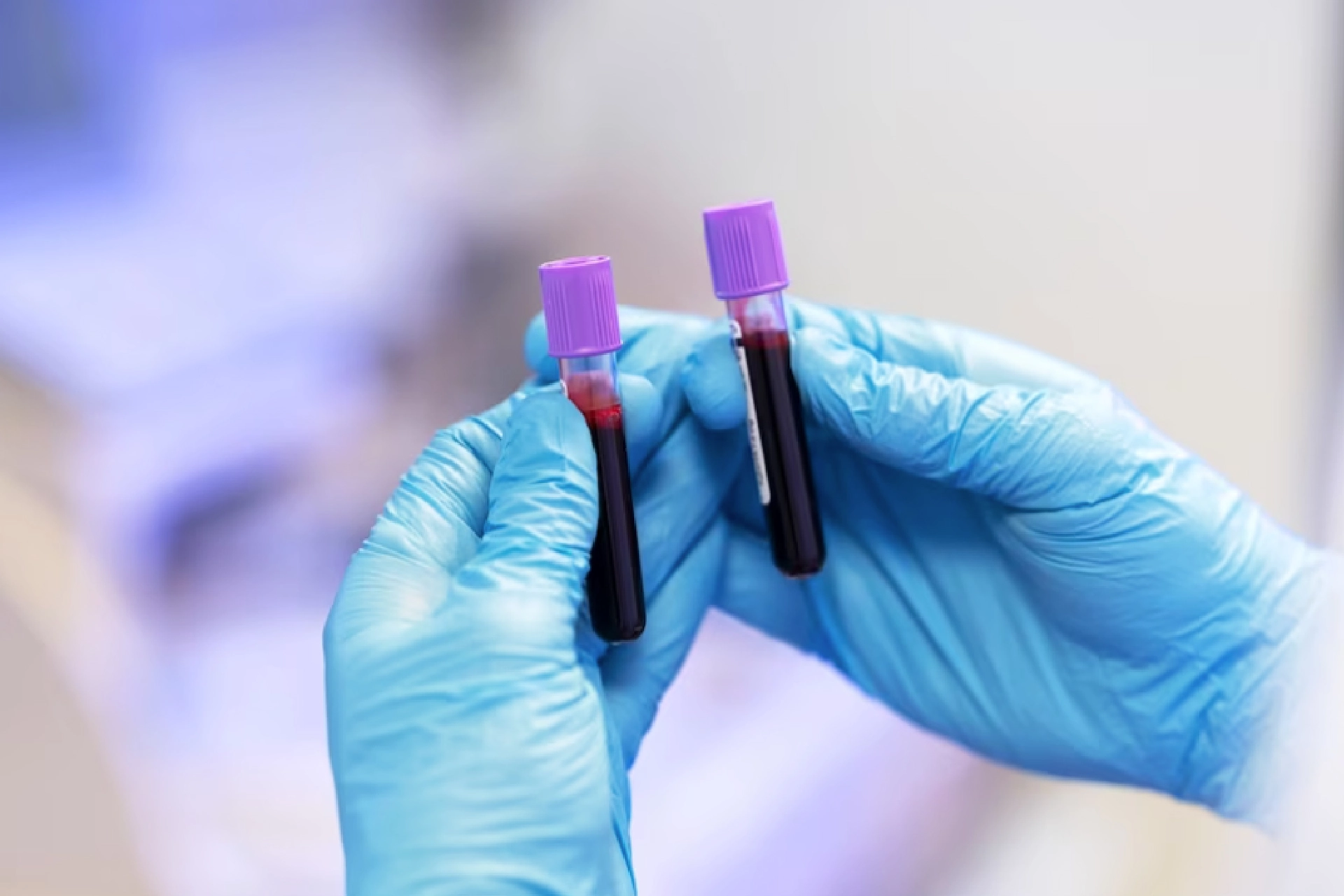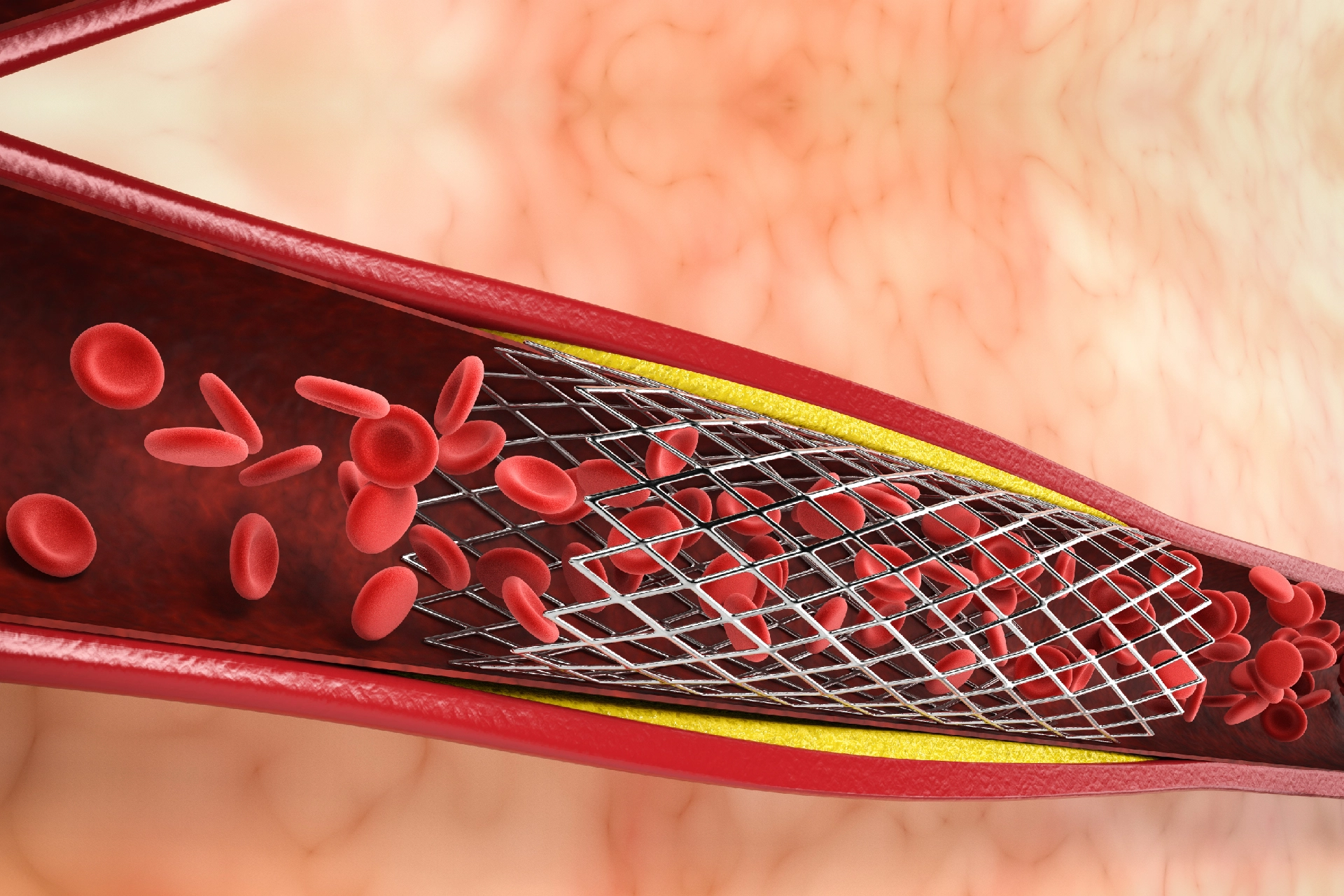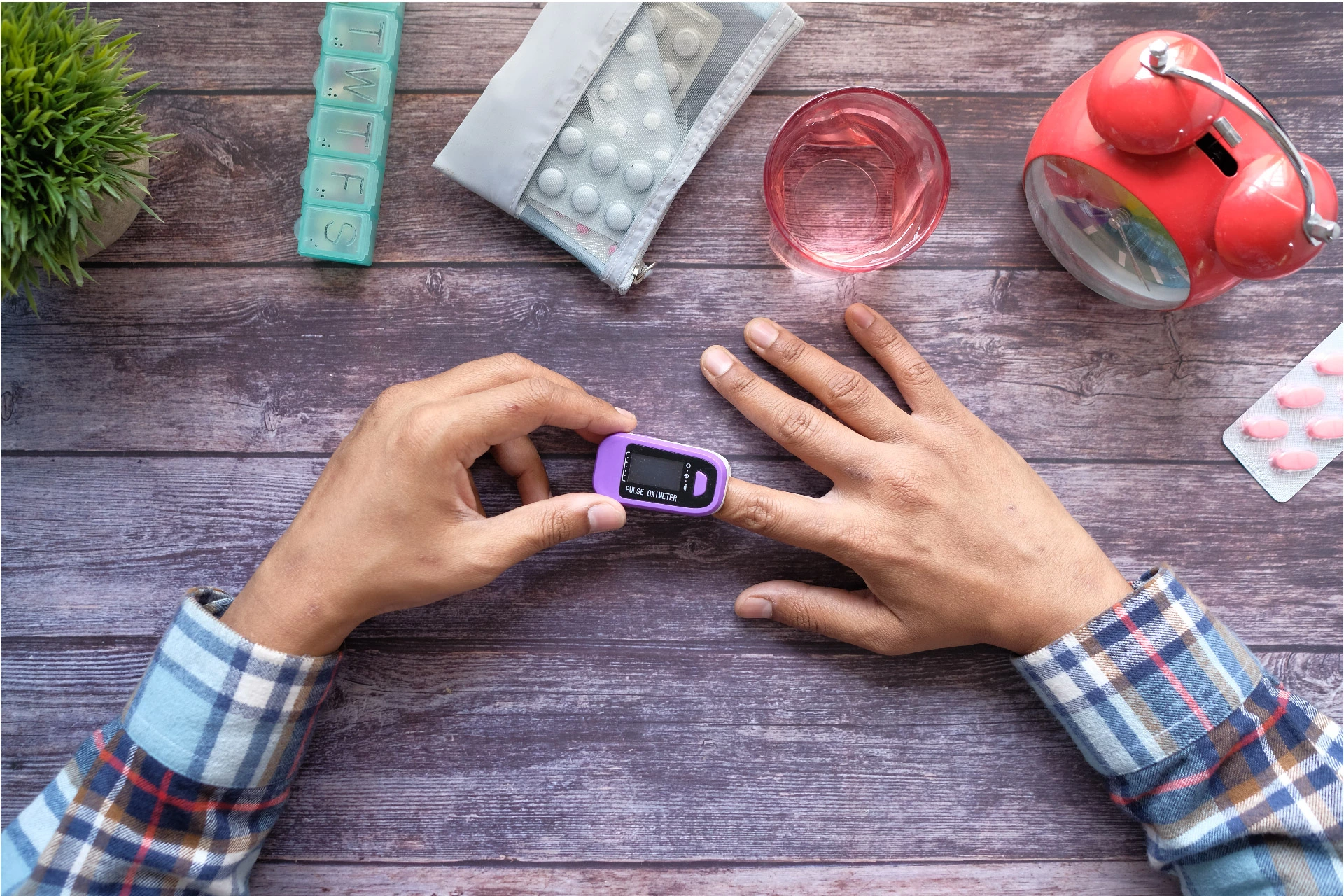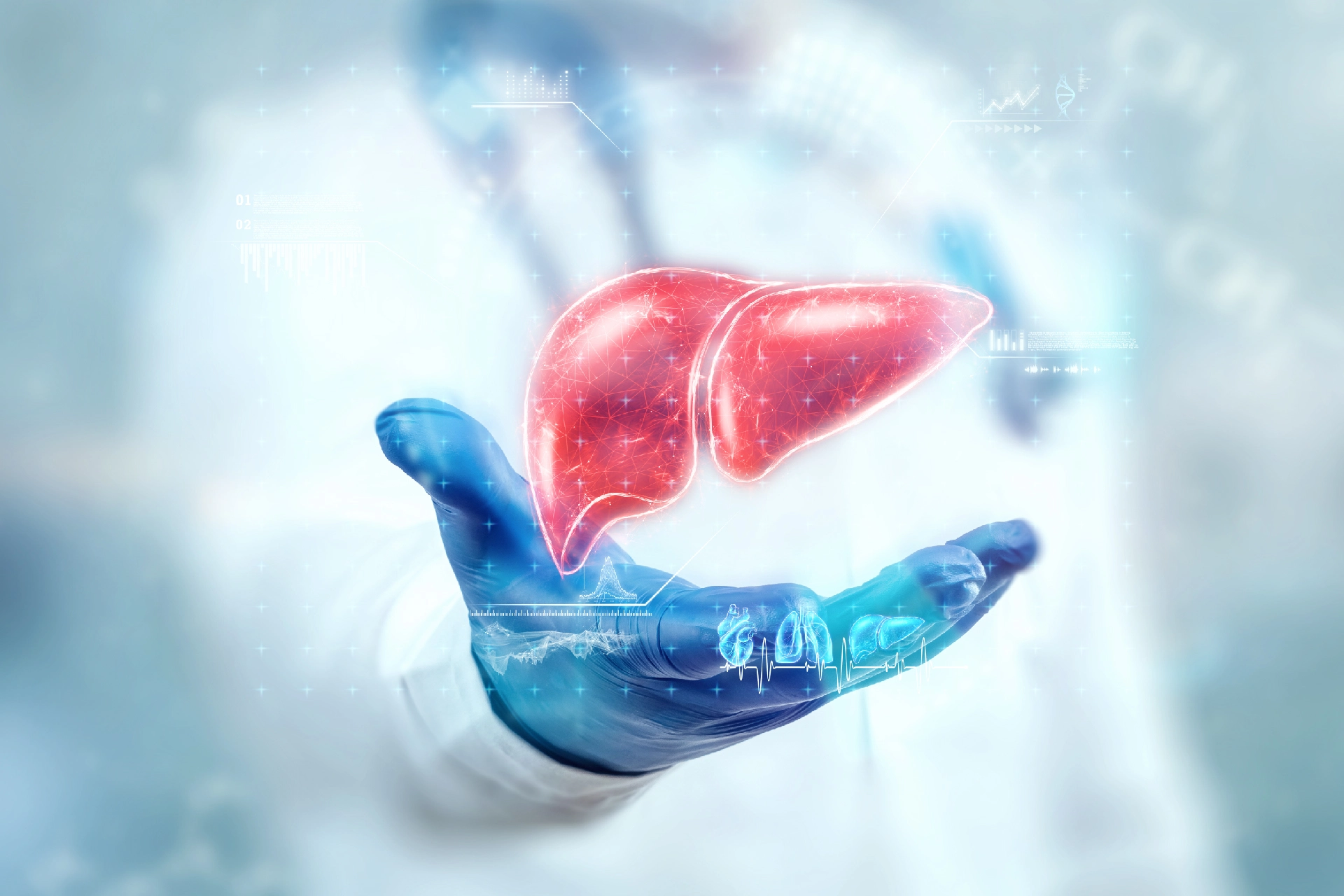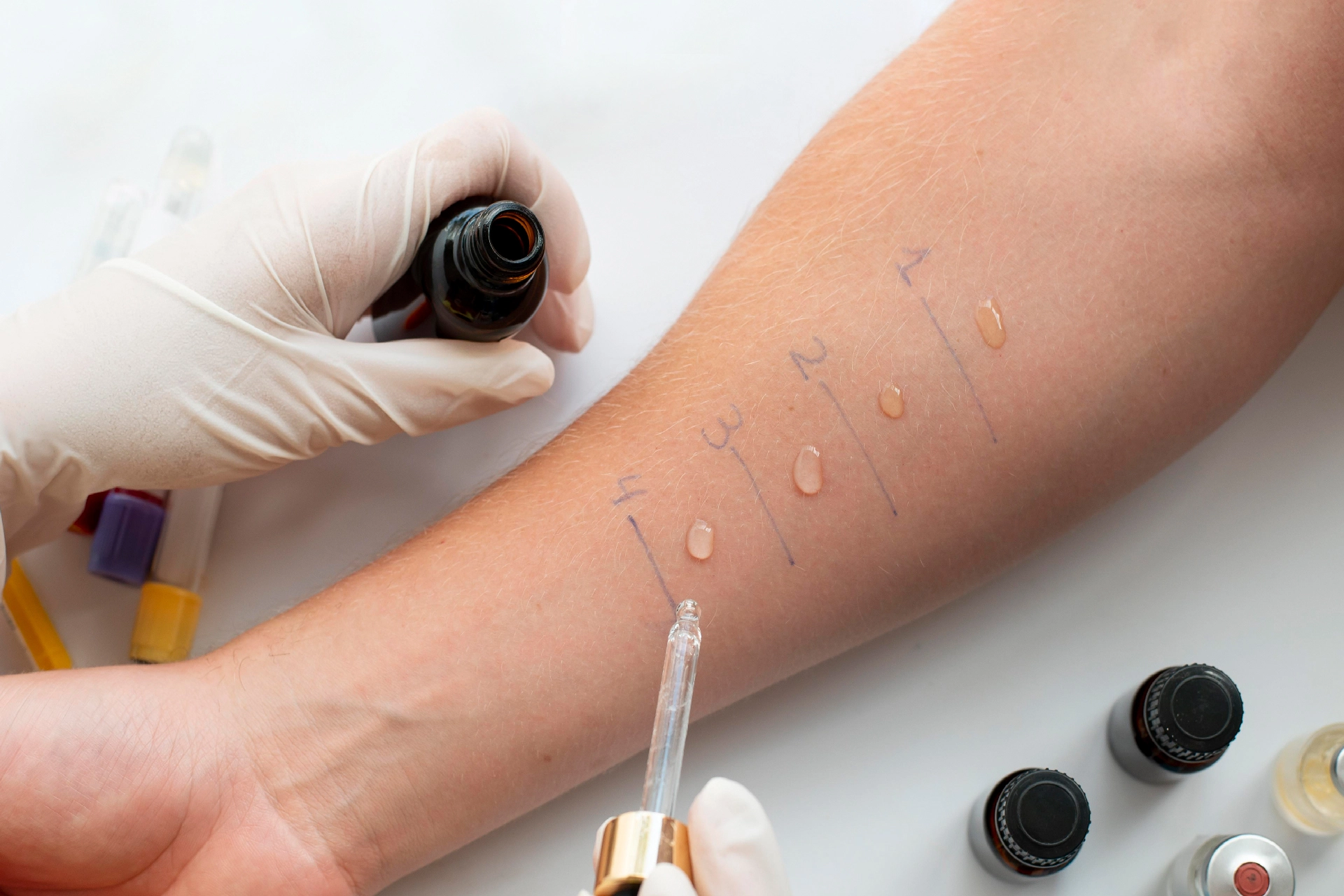Health Tests | 4 min read
What is the Role of a TSH Test in Detecting Thyroid Disorders?
Medically reviewed by
Table of Content
Key Takeaways
- TSH test is a blood test that helps you measure your thyroid health
- Normal TSH levels lie between 0.4-4 milli-international units per liter
- Thyroid disorders <a href=" https://www.bajajfinservhealth.in/articles/how-does-an-acr-test-help-in-detecting-kidney-diseases">detected using this test are Graves’ disease</a> and thyroiditis
The TSH test is a thyroid stimulating hormone test. This TSH blood test is done to assess the levels of thyroid stimulating hormones in your body. With the help of this thyroid function test, doctors can determine if your thyroid gland is working properly. The thyroid gland is a small gland located in your throat that produces thyroid hormones. These hormones play a major role in the metabolism of your body [1].
The TSH hormone is produced by the pituitary gland situated in your brain. When the level of thyroid hormones increases, this gland produces less TSH. However, when your thyroid levels are low, more TSH is produced. If your blood contains low or high TSH levels, it indicates that you're suffering from thyroid disorders. Read on to understand more about the TSH test.
Additional Read: Signs of Hyperthyroidism and Hypothyroidism: A Guide to the Two Thyroid ConditionsWhen Should You Get a TSH Blood Test Done?
A TSH blood test is ordered when your doctor suspects or see symptoms of a thyroid disorder. The two types of thyroid diseases are hypothyroidism and hyperthyroidism.
In hypothyroidism, your thyroid gland produces insufficient hormones that can slow down your metabolism. Some of the common symptoms observed in hypothyroidism include:
- Weakness in muscles
- Low heartbeat
- Body aches
- Fatigue
- Dry skin
- Weight gain
- Hair fall
- High cholesterol level
- Changes in menstrual cycle
If your thyroid gland is producing excess thyroid hormones, the condition is called hyperthyroidism. Here you may experience the following symptoms [2].
- Increased appetite
- Irregular heart rate
- Profuse sweating
- Weight loss
- Feeling irritable
- Fatigue
- Increased appetite
- Inability to sleep properly
Apart from these two conditions, this test is also used to detect:
- Thyroid gland inflammation
- Hashimoto’s thyroiditis
- Graves’ disease
- Formation of thyroid nodules
[caption id="attachment_8039" align="aligncenter" width="1000"] Asian people feel sore throat due to tonsillitis using their hands to touch the neck. Isolated background.[/caption]
Asian people feel sore throat due to tonsillitis using their hands to touch the neck. Isolated background.[/caption]
How Is a TSH Test Done?
During a TSH test, blood is extracted from your arm using a needle. This blood sample is collected in a small test tube. The area is cleaned with an antiseptic before pricking. When the needle is being pricked, you may feel a slight stinging sensation. Then, an elastic band is tied around your arm. This is done to make your veins swell so that blood extraction is easy. After drawing blood, a bandage is put on the pricked site. The whole procedure is completed in less than 5 minutes. The sample is then sent to a lab for analysis.
How Do You Prepare Yourself for This Blood Test?
This test does not require you to do any special preparations. You need not fast before taking the TSH test. However, inform the doctor if you are on certain medications that can affect test results. Few medicines that interfere with TSH test results are as follows.
- Biotin
- Dopamine
- Potassium iodide
- Lithium
How Are the Results Interpreted?
The normal TSH levels found in an individual range between 0.4 and 4 milli-international units per liter. In case you are undergoing treatment for any thyroid disorder, the normal range would be in the range of 0.5-3 milli-international units per liter. If your test value exceeds the normal range, it is an indication that your thyroid gland is underactive. This is hypothyroidism, wherein the pituitary gland produces more TSH to manage the insufficient production of thyroid hormones.
If the TSH values are less than normal, you may have hyperthyroidism. When the overactive thyroid gland produces excess hormones, the pituitary gland secretes less TSH. Your doctor may ask you to undergo additional tests after evaluation for proper confirmation. These tests include T3 and T4 hormone tests.
Are There Any Risks Associated with the Tsh Test?
There are no major risks in doing this test. There may be slight pain or bruising at the site where the needle has been inserted. This is a minor pain that will subside within minutes. In rare cases, you may feel slight dizzy or nauseated after the needle prick is done.
TSH test is the ideal test to detect thyroid disorders. In case your results are abnormal, doctors may ask you to go for further evaluation. Any thyroid issue can be tackled by following proper medications or even a surgery. It is better to monitor your TSH levels regularly to ensure that your thyroid symptoms are in control. Book thyroid test packages on Bajaj Finserv Health and keep your thyroid problems at bay. Consult eminent specialists and stay safe from thyroid issues.
References
- https://medlineplus.gov/lab-tests/tsh-thyroid-stimulating-hormone-test/
- https://agsjournals.onlinelibrary.wiley.com/doi/abs/10.1111/j.1532-5415.1996.tb05637.x
Disclaimer
Please note that this article is solely meant for informational purposes and Bajaj Finserv Health Limited (“BFHL”) does not shoulder any responsibility of the views/advice/information expressed/given by the writer/reviewer/originator. This article should not be considered as a substitute for any medical advice, diagnosis or treatment. Always consult with your trusted physician/qualified healthcare professional to evaluate your medical condition. The above article has been reviewed by a qualified doctor and BFHL is not responsible for any damages for any information or services provided by any third party.

